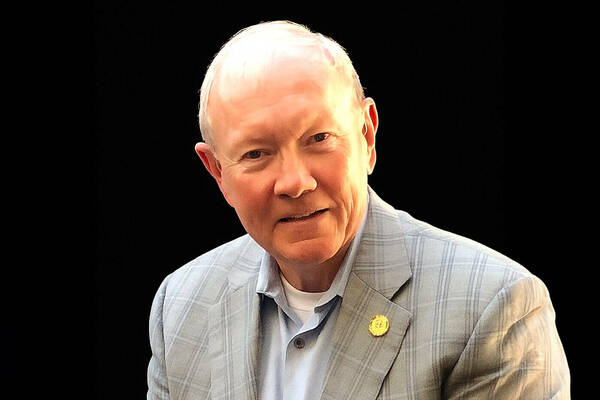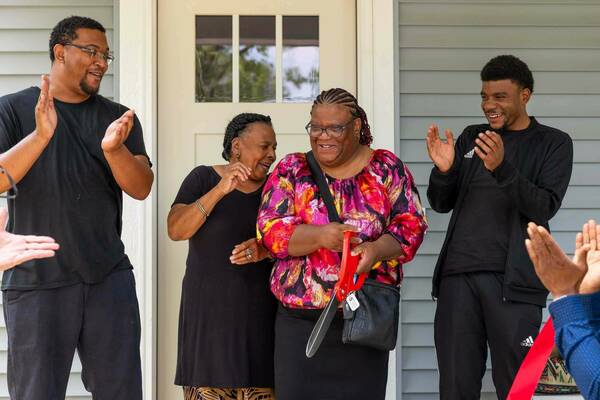The invasion of Iraq: Perspectives on war 20 years later
On March 20, 2003, a combined force of troops from the United States, the United Kingdom, Australia and Poland invaded Iraq in a ground assault. Twenty-two days later, the capital city of Baghdad was captured by coalition forces. When U.S. military forces withdrew from Iraq in 2011, the death toll had risen to 100,000, with many more thousands having fled. The stated goal of the coalition had been to disarm Iraq of its weapons of mass destruction, to end Iraqi President Saddam Hussein’s support of terrorism and to free the Iraqi people.
University of Notre Dame experts look back on this 20-year anniversary and discuss whether those objectives were adequately met, and the aftermaths of war and peace on the Iraqi people and on the U.S.
Lessons of the Iraq war
Mary Ellen O’Connell, the Robert and Marion Short Professor of Law and research professor of international dispute resolution, is the author of “Occupation Failures and the Legality of Armed Conflict: The Case of Iraqi Cultural Property,” “The Iraq War One Year Later,” “The Prohibition of Force” in The Research Handbook on International Conflict and Security Law 89, and a former professional military educator for the U.S. Department of Defense.

“Their war aim was to remove Saddam Hussein from power,” O’Connell said. “Their legal justification involved a 1991 United Nations Security Council resolution mandating an end to any Iraqi program for weapons of mass destruction. On its face the legal case bore virtually no connection to the war aim. Hearings in the UK after the invasion revealed government officials were fully aware of the far greater flaws--the legal argument was a sham.
“Today, the U.S., UK, Poland and Australia are joined again, this time in the effort to defend Ukraine from Russia's invasion. Russia's war aims are even more egregious than those respecting Iraq 20 years ago. Russia's legal justification is an even greater sham.
“An imperative lesson of both invasions, however, is the same: There is no substitute for strict compliance with the UN Charter prohibition on the use of force, binding equally on all states.”
The U.S. has an obligation to assist the Iraqi people
David Cortright, professor emeritus from the Kroc Institute for International Peace Studies in the Keough School of Global Affairs, holds expertise in nonviolent social change, nuclear disarmament and the use of multilateral sanctions and incentives as tools of international peacemaking. He is the co-editor of more than 20 books and has a long history of public advocacy for disarmament and the prevention of war.

“The U.S.-led invasion and occupation of Iraq caused widespread chaos, death and destruction,” Cortright said. “War, armed insurgency and bitter ethnic strife turned Iraq into a setting of vast economic and social suffering. Violence spread from multiple sources: U.S. bombing and military operations, the armed insurrection that rose against the invasion, the development of militias and extremist groups and the emergence and growth of the Islamic State.”
Cortright noted that one of the most rigorous scientific studies of the period between 2003 and 2011 concluded that approximately half a million deaths were attributable to the direct and indirect consequences of the U.S. war and military occupation.
Because of the harm U.S. policies created for the country, he says that the U.S. has a special responsibility to help the people of Iraq.
“We can fulfill that duty by working in concert with other states to provide development and humanitarian assistance for investments in education, health care and employment opportunities for all Iraqis, especially women, who suffered grievously during the war and its violent aftermath.”
Justifications of war based on unfounded claims
Atalia Omer, professor of religion, conflict and peace studies in the Keough School of Global Affairs and core faculty member of the Keough School’s Kroc Institute for International Peace Studies, focuses her research on religion, violence, peacebuilding, conflict transformation and justice. Omer sees the invasion and subsequent occupation of Iraq as being based on the false justification that weapons of mass destruction existed there, that the U.S. was responding in kind to the terrorist attacks of Sept. 11, 2001, and that the “war on terror” that eventually justified the invasion/occupation of Iraq is far from over and made the world less safe.

“This lie (about weapons of mass destruction) was an effort to show the consistency of the decision to invade with just war theory (the presumption of just cause for war),” Omer said. “And while this lie receded to the background as a narrative frame, an anti-Muslim orientalist and unfounded association of the attacks of Sept. 11 – which featured Islamic activists – with the secular regime of Saddam Hussein has provided an enduring narrative underpinning the ongoing global infrastructure of the so-called ‘war on terror.’
“Tragically, the destruction of the Hussein regime resulted in the emergence of Da’esh (ISIS) and the proliferation of sectarian violence and destruction in the MENA (Middle East and North Africa) region, which persists until today,” Omer added.
This association is considered orientalist because it presumes identification between Muslim groups of radically different worldviews and geographic locations, Omer explained, in addition to viewing them as an ahistorical “essence” that remains constant across time and space.
“It reductively explained the violence of Sept. 11 as an outcome of culture and religion, rather than of historical and geopolitical factors and the meddling of the U.S. in the region before those momentous events (including the devastating sanctions regime in the 1990s),” Omer said. “Instead of asking historically grounded questions explaining the attacks of Sept. 11, the reaction to the event signaled a move to American (white) ‘innocence’ undergirded by reductive and orientalist rhetoric about a ‘clash of civilizations’ and a gendered appeal to ‘save Muslim women.’”
The other persisting misconception, which is likewise orientalist, Omer said, was that the invasion and occupation were part of an effort to prevent “violent religious extremism” in the world, relying on the “war on terror” narrative as further justification. This claim entails investment in religious literacy in policy and diplomacy, as well as development to compliment and soften the military’s approach.
“This form of securitizing religion is the ongoing legacy of the U.S.’s invasion of Iraq and occupation, which began with a lie but, more deeply, has relied on orientalism and Islamophobia while benefiting the oil and defense industries,” Omer said. “Considering that, contrary to perceptions, the ‘war on terror’ is ongoing, we must continue questioning the link between al Qaeda and the attacks on Afghanistan immediately following Sept. 11 and, two years later, the turn to Iraq.”
As part of this year’s Notre Dame Forum on War and Peace, the University of Notre Dame will hold two events exploring the impact and aftermaths of the Iraq war on the occasion of the 20th anniversary of the U.S. invasion.
To learn more about these events, visit news.nd.edu.
Latest ND NewsWire
- Eck Institute investigator to strengthen postpartum care for Indiana mothersYenupini Joyce Adams, associate professor of the practice and maternal health lead for the Eck Institute for Global Health at the University of Notre Dame, is partnering with Beacon Health System to pilot a new, first-of-its-kind postpartum care model in the South Bend-Elkhart community.
- Gen. Martin Dempsey to speak at Notre Dame Forum event on ‘Hope, Global Stability and the Role of the United States’Gen. Martin Dempsey, the retired 18th chairman of the Joint Chiefs of Staff, will join University President Rev. Robert A. Dowd, C.S.C., for a fireside chat at 4 p.m. Friday (Oct. 10), as part of the 2025-26 Notre Dame Forum. The discussion, titled “Hope, Global Stability and the Role of the United States,” is part of the exploration of this year’s Notre Dame Forum theme, “Cultivating Hope.” It will take place in Rooms 215/216 of McKenna Hall and will also be livestreamed. The event is free and open to the public.
- University of Notre Dame joins the Global Coalition of Ukrainian StudiesThe University of Notre Dame has joined the Global Coalition of Ukrainian Studies after signing a memorandum of cooperation, formalized Sept. 24, at the Ukrainian Institute of America in New York City. Notre Dame joined four other American institutions that were also publicly welcomed to the coalition at this event: Arizona State University, Columbia University, Manor College and the Shevchenko Scientific Society.
- One year later, Inauguration Build a ‘dream come true’ for Habitat familiesOne year later, work on Inauguration Build 2024 is complete, offering shelter and so much more to five local families.
- Alumni Association and YoungND honor 2025 Domer DozenThe Notre Dame Alumni Association announced its 2025 Domer Dozen cohort, honoring 12 graduates ages 32 and younger for excellence in their contributions in learning, service, faith and work — the core pillars of the association’s mission.
- Faculty receive prestigious early career awards from National Science FoundationDuring the 2024-25 academic year, four researchers in the University of Notre Dame’s Colleges of Engineering and Science received early-career awards from the National Science Foundation.













